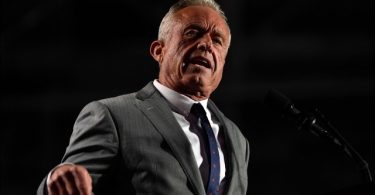Tennessee foster care and adoptive parents won’t be required to affirm or accept a child’s sexual orientation or gender identity under a GOP-backed bill heading for a vote on the House and Senate floors.
The proposed Tennessee Foster and Adoptive Parent Protection Act would prohibit the Department of Children’s Services from excluding parents who want to foster or adopt a child based on the parents’ moral or religious objections to LGBTQ identity.
It “does not preclude the department from considering the religious or moral beliefs of an adoptive or foster child, or their family of origin” — qualifying language in the bill that falls short of requiring the agency to do so.
Dickson Republican Rep. Mary Littleton said the bill was intended to lead to better matches between parents and children needing loving homes and would expand the pool of willing foster families. Tennessee currently faces a shortage of foster homes. More parents may step forward to become foster parents if they do not have to compromise their deeply held beliefs, according to Littleton.
“This bill aims to protect the moral and religious beliefs of adoptees and foster parents,” Littleton said during a House Civil Justice Committee hearing Wednesday. Sen. Paul Rose, a West Tennessee Republican, is co-sponsor.
“This bill does not disregard the values and beliefs of the child,” she said, noting DCS can decide whether or not to place children in a specific home based on “a comprehensive list of factors.”
LGBTQ and child legal advocates strongly oppose the measure, noting that nothing in the bill’s language prevents LGBTQ children from being placed with any prospective parent, even those parents who may wish to ignore or denigrate a child’s identity — or seek to change it.
Nanette Clark, a Nashville attorney who has served as a court-appointed child guardian and special judge in Davidson County Juvenile Court, said the bill could lead to additional trauma for LGBTQ kids in state custody — who by definition have faced abuse or neglect before being taken from their own families.
“When you require DCS to place an LGBTQ child in a placement that will refuse to support their sexual identity, not only are you creating additional adverse childhood experiences and trauma, you’re creating situations where children will find a way to escape that placement, either through running way, a suicide attempt or making false allegations against the foster parents or adoptive parents,” she said. “They will find a way to escape that situation.”
LGBTQ kids are disproportionately represented in foster care across the nation, with some studies suggesting that up to a third of all foster youth identify as LBGTQ — often winding up in state custody as result of mistreatment or rejection based on their gender identity, according to the U.S. Department of Health and Human Services.
Current DCS foster care guidelines, published by the federal government, show that the Tennessee is one of approximately 39 states that provide explicit protections from harassment and discrimination based on sexual orientation or gender identity.
Children coming into state custody may not be old enough to articulate their gender identity or sexual orientation — or willing to share personal information with caseworkers, Cathryn Oakley, senior director of legal policy for Human Rights Campaign, told lawmakers during a Senate hearing on the bill Tuesday.
“Sexual orientation and gender identity isn’t necessarily something a very young child is going to have the words to be able to articulate…..and if they stay with that family for a period of time they still deserve to be treated with dignity and respect,” she said.
Oakley warned lawmakers that Tennessee could also risk federal funding by adopting the law.
Tennessee AG leads multi-state fight against federal protections for LGBTQ foster youth
The U.S. The Department of Health and Human Services last year proposed new rules for “safe and appropriate placement” of LGBTQI+ youth in state foster care systems, rules that go further than current DCS LGBTQ-affirming policies.
Among the proposed rules are that foster homes “establish an environment free of hostility, mistreatment, or abuse based on the child’s LGBTQI+ status” and “facilitate the child’s access to age-appropriate resources, services, and activities that support their health and well-being” if the child wishes, including gender affirming medical care, currently barred by Tennessee law.
In November, Tennessee Attorney General Jonathan Skrmetti, joined by counterparts in 16 other states, publicly opposed the rules, saying they would shrink the pool of available foster families willing to care for kids.
The proposed rules, Skrmetti wrote, would also “further divert resources away from protecting foster children from physical abuse and toward enforcing compliance with controversial gender ideology.”
GET THE MORNING HEADLINES DELIVERED TO YOUR INBOX







